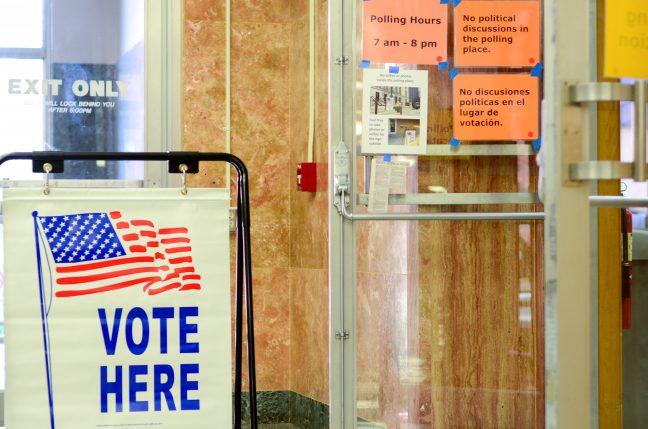The Wisconsin Elections Commission is searching for three additional staff members after experiencing a 28 percent decrease in staff over the last two budget cycles.
Two of the positions would focus on election security, such as cybersecurity and security of voting equipment. The third position would focus on outreach and updating public information about voter registration and photo ID requirements.
Wisconsin Elections Commission administrator Michael Haas said losing these positions makes it more challenging to keep up with the commission’s responsibilities.
The commission is responsible for certain election duties at the state level, such as maintaining the electronic voter registration system, helping candidates get on the ballot and reviewing nomination papers, Haas said.
In addition, the commission is also responsible for educating voters and making sure that voters know what the rules are, how to register to vote and what a proper photo ID, Haas said.
“With losing these positions, that just cuts into some of our core responsibilities and makes it more challenging to keep up with all of those tasks,” Haas said. “On top of that, we have this new priority on election security and building on what we’ve done previously to secure elections.”
The commission has always worked with agencies like the FBI, state law enforcement and local law enforcement, Haas said. But the Department of Homeland Security is a new actor the commission is working with.
Before the next election, University of Wisconsin political science professor Barry Burden said security concerns are most likely at the top of the list of things to focus on.
“[Security concerns are] not going away,” Burden said. “They’re gonna become more complicated and more pressing as things go on.”
In addition, Burden believes more education for the public is needed about voter ID laws. He said numerous surveys have shown the public is not fully informed about the law.
A study published in late September by UW political science professor Kenneth Mayer found more than 16,000 Wisconsinites may have been deterred from voting because of the voter ID law.
Haas said the commission invited Mayer to their Dec. 12 meeting to discuss the study.
“The state has done very little public education, even though the law mandates that the state has to allocate funds to help inform the public,” Burden said. “I think there’s much more that can be done there.”
UW professor finds more than 16,000 Wisconsinites were deterred from voting
Hiring additional staff members to address some of the concerns Burden mentioned was originally part of the 2017-19 biennial budget, but the measure was vetoed by Gov. Scott Walker in late September.
Soon afterwards, Rep. Melissa Sargent, D-Madison, and other state Democrats, introduced a bill that would allow for five additional full-time Wisconsin Elections Commission staff members.
“The Legislature in Wisconsin has been standing in the way of people being able to vote,” Sargent said. “Rather than creating barriers for people to vote, we need to remove those barriers.”
Around $304,000 dollars would be spent in order to pay for the additional staff members, Sargent said.
She said it’s a “small price to pay” to ensure Wisconsin’s elections are secure.
“It’s really important to add staff to make sure we can stand firm in protecting the integrity of elections security in the democratic process,” Sargent said.
Report shows ‘large number’ of 17-year-olds voted illegally in presidential primary
As a lawmaker, Sargent said she is passionate about ensuring the voting process has as much integrity as possible.
The commission plans to meet with the Department of Administration to figure out whether or not separate legislation is necessary to create those additional positions and what would be required to get additional positions approved, Haas said. If legislation is necessary, the commission will work with the Legislature to ask for their support.
“It is imperative … that we have fair, transparent and honest election systems in order to make sure our democratic process can move forward,” Sargent said.














